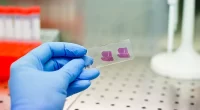New development on diagnosis and treatment of ischemic cholecystitis – Ischemic cholecystitis is a sneaky and potentially serious inflammation of the gallbladder that occurs without the presence of gallstones or any other form of external blockage has long perplexed diagnosticians and challenged treatment plans. It’s caused by a lack of blood flow to the gallbladder tissue, essentially putting it on a starvation diet of oxygen and nutrients.
This enigmatic condition arises not from physical obstruction, but from a cruel twist of fate – a compromised blood supply. New research is shedding light on its intricacies, paving the way for improved diagnosis and treatment.
One crucial revelation comes from researchers at the University of California, San Francisco. They identified the gallbladder’s Achilles’ heel: its dependence on a single artery. Unlike most organs boasting a redundant network, the gallbladder receives its lifeblood through a solitary pathway. If this artery becomes blocked, the consequences can be dire – the delicate tissue starves, triggering a cascade of inflammation.
This vulnerability explains why ischemic cholecystitis often lurks amongst the critically ill. Hypotension, a common companion in critical care settings, can cripple blood flow to the gallbladder, setting the stage for ischemic injury. This discovery underscores the importance of considering ischemic cholecystitis in the differential diagnosis of critically ill patients with abdominal pain, even in the absence of gallstones.
Early and accurate diagnosis remains a formidable challenge. Misdiagnosis as sepsis or pancreatitis is a frequent pitfall, leading to delays in appropriate treatment and potentially worse outcomes. The research team identified promising avenues for improved diagnosis. Elevated levels of specific inflammatory markers in the blood of ischemic cholecystitis patients emerged as a potential diagnostic clue. Additionally, the development of a scoring system to stratify patients at risk, based on underlying medical conditions and clinical presentation, could prove invaluable in prioritizing investigations and early intervention.
Treatment for ischemic cholecystitis, unlike its gallstone-driven counterpart, offers no quick fixes. Laparoscopic cholecystectomy, the surgical removal of the gallbladder, remains the definitive remedy. While effective in preventing recurrence, it’s an invasive option, especially for critically ill patients already burdened with multiple health complications.
Beyond surgery, the future may hold promise for non-invasive therapies. The research team is exploring the potential of hyperbaric oxygen therapy to improve microcirculation and mitigate tissue damage in the ischemic gallbladder. This holds promise for a less invasive treatment approach, particularly beneficial for vulnerable patients.
In conclusion, the battle against ischemic cholecystitis is far from over. However, new insights into its cause, diagnosis, and potential treatment avenues offer valuable ammunition. By shedding light on its unique pathophysiology and the unique vulnerability of the gallbladder, this research paves the way for improved clinical management and better outcomes for patients grappling with this challenging condition. Study source
Don’t Miss: Evolution of Tuberculosis: New Insights and Facts








